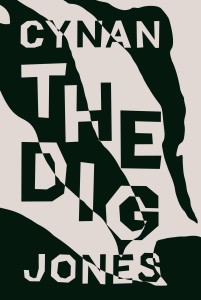The Dig, by Cynan Jones, Coffee House Press, 2015. $15.95, 156 pages.
Trembling with taut, visceral prose, Cynan Jones’s The Dig is a sparse work of searing beauty. Set in rural Wales, The Dig follows the lives of two men: the recently widowed farmer Daniel as he navigates alone through an unsuccessful lambing season and a trapper who illegally hunts badgers for the dogfights in town. Rendered in short, knotty sentences amid airy paragraphs, these parallel threads provide each other with a masterful thematic balance: Daniel’s life is one of interment while the trapper exhumes. As the novel progresses, their stories drift dangerously close, pulled together by the unforgiving earth.
Daniel makes no efforts to cope with his loss but instead embraces his new existence, a lonely, purposeful union of man and earth. His acreage and lambs are all that remain, and a series of difficult, brutally detailed births provide him with no reminders of the miracle of life. He’s stopped eating almost entirely and only goes into town for meager hygienic essentials. If the earth had giveth at one point in Daniel’s life, so much has since been taken that there’s no lingering trace of that bounty.
Nearby in the village, the large, unnamed trapper leads a similarly muted, introspective life. With a horde of yapping terriers at his feet, Jones’s trapper wanders by flashlight, skittishly aware of the legal repercussions he would face if caught hunting and trespassing. Early in the novel, Jones depicts a badger dig with astonishing clarity and tension: dogs bark from underground, inside the animal’s tunnels, while the men attempt to dig through to the cornered badger from above. They work by moonlight and flashlight, careful not to make too much noise and blow their cover.
The badger’s fate is not unlike the premature lamb Daniel delivers in the novel’s first section: both are thrown fiercely into the cruel clamor of the animal kingdom. Daniel’s lamb struggles to survive without its mother, intubated daily by Daniel. The badger, meanwhile, is transferred quickly from sett to sack and dumped amidst a ring of fighting terriers. The bettors declaw the creature and smash out its fangs, letting its blood to rile the dogs into an incendiary frenzy.
Perhaps both these creatures weren’t meant to exist. Perhaps survival is a privilege of happenstance, or simply evasion from the countless threats inherent with life on this earth. It’s a difficult realization to grapple with, and especially so considering the premature departure of Daniel’s wife. With her gone, it’s not the emptiness that consumes Daniel but the worthlessness of all she’s left behind.
Alone, Daniel awaits a “crack,” some substantive culmination of the steady sapping of his spirit:
God, he thought, give me something to burn [the anger] out. He thought of a colossal car crash, of the huge finalizing impact. He put his palm against the upright and felt the rough wood there under his hand. The barn was full of her.
The sentiment here is one central to the novel, but its power is unfortunately stunted by Jones’s rush to the finish. At less than 160 pages, The Dig is a short novel where every word counts with Hemingway-like precision, but its perfunctory ending may put that precision into question. Yet, it seems leaving his readers with a desire for a more “fleshed-out” novel is exactly what Jones intends: The Dig is ruthlessly starved of fat, its meat pulled clean from the bones.

